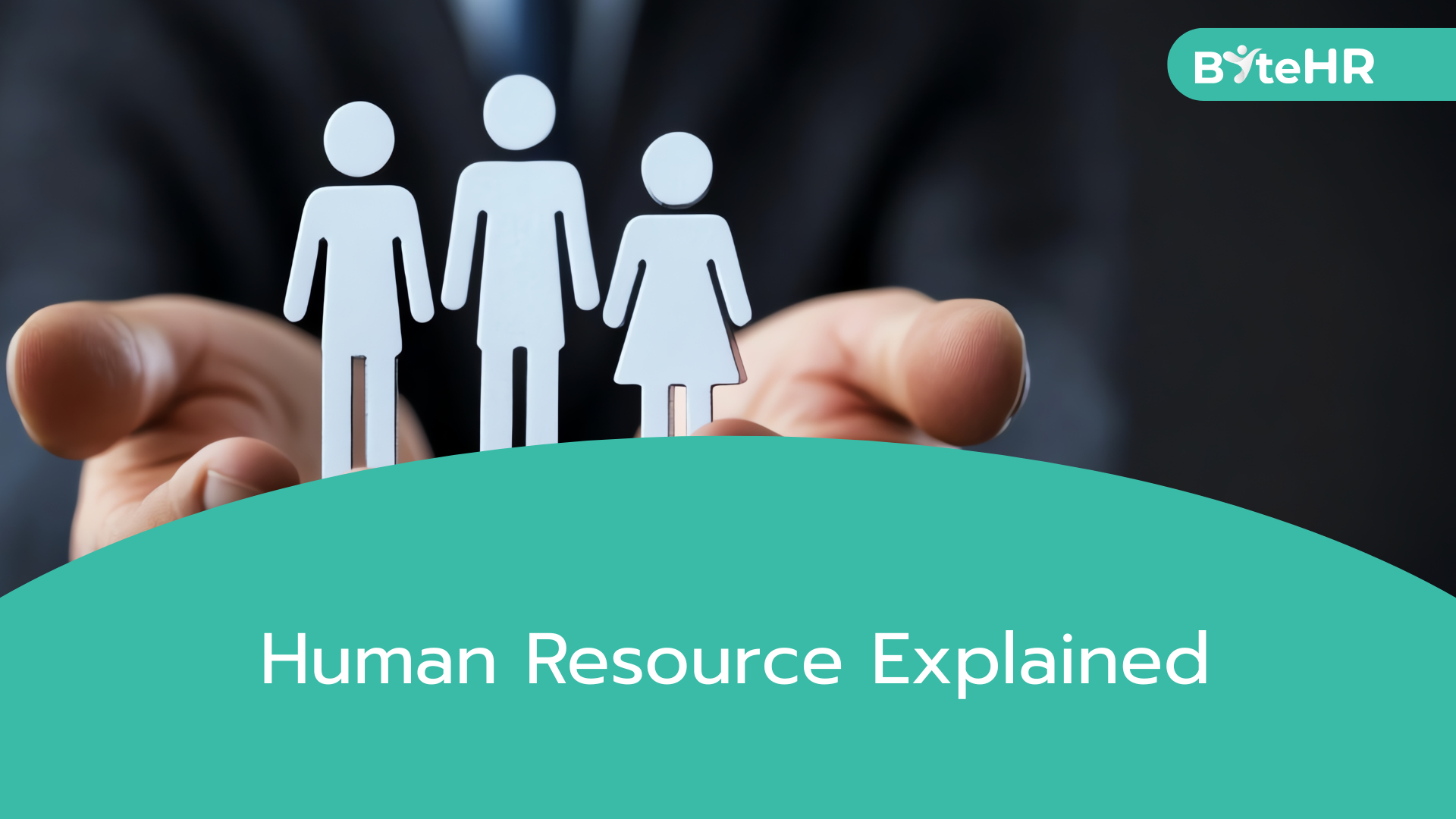Human Resource Explained

In today's competitive business landscape, the term "human resource" is frequently mentioned in corporate discussions, yet its full scope and significance are often underestimated. Human resources encompasses far more than just hiring and firing; it represents the lifeblood of any organization and plays a pivotal role in driving success, fostering culture, and ensuring sustainable growth.
Defining Human Resource
Human resources, commonly abbreviated as HR, refers to both the people who work for an organization and the department responsible for managing employee-related matters. At its core, HR represents the collective skills, knowledge, experience, and capabilities that employees bring to an organization. These human assets are what enable businesses to operate, innovate, and achieve their strategic objectives.
The HR department serves as the bridge between management and employees, ensuring that the organization's most valuable assets, its people. Unlike physical or financial resources, human resources have the unique ability to grow, adapt, and create value through creativity, problem-solving, and collaboration.
The Evolution of Human Resource Management
Historically, personnel management focused primarily on administrative tasks such as maintaining employee records, processing payroll, and ensuring compliance with labor laws. However, as businesses evolved and the workplace became more complex, the role of HR transformed significantly.
Modern human resource management has become a strategic function that directly contributes to organizational success. Today's HR professionals are business partners who align workforce strategies with company goals, cultivate workplace culture, and drive employee engagement. This evolution reflects a fundamental shift in how organizations view their employees, not as mere costs to be minimized, but as investments that yield returns through productivity, innovation, and competitive advantage.

Core Functions of Human Resources
The HR department encompasses a wide range of responsibilities that touch nearly every aspect of the employment lifecycle:
Recruitment and Selection involve attracting qualified candidates, conducting interviews, and selecting individuals who not only possess the required skills but also fit the organizational culture. Effective recruitment ensures that businesses have the right talent to meet current and future needs.
Onboarding and Training help new employees integrate into the organization smoothly while providing existing staff with opportunities for professional development. This function ensures that employees have the knowledge and skills necessary to perform their roles effectively and advance in their careers.
Compensation and Benefits encompasses designing competitive salary structures, managing payroll, and administering employee benefits programs. Fair and attractive compensation packages are essential for attracting and retaining top talent in competitive markets.
Performance Management involves setting clear expectations, providing regular feedback, conducting performance appraisals, and identifying opportunities for improvement. This function helps align individual performance with organizational objectives while supporting employee growth.
Employee Relations focuses on maintaining positive workplace relationships, addressing grievances, resolving conflicts, and ensuring effective communication between management and staff. Strong employee relations contribute to higher morale and reduced turnover.
Compliance and Legal Matters ensures that the organization adheres to labor laws, employment regulations, workplace safety standards, and other legal requirements. This protective function minimizes legal risks and creates a fair working environment.
The Strategic Importance of Human Resources
In the modern economy, human capital has become the primary differentiator between successful and struggling organizations. Companies with effective HR strategies consistently outperform their competitors because they understand that engaged, skilled, and motivated employees drive innovation, customer satisfaction, and profitability.
HR contributes strategically by workforce planning to anticipate future talent needs, succession planning to ensure leadership continuity, and culture building to create environments where employees thrive. Additionally, HR plays a crucial role in change management, helping organizations navigate transformations while maintaining employee morale and productivity.
Organizations that invest in their human resources through training, competitive compensation, career development opportunities, and positive workplace cultures experience lower turnover rates, higher productivity, and stronger employer brands that attract top talent.
The Human Element in HR
Despite increasing automation and digitization, the human element remains central to human resource management. HR professionals must possess strong interpersonal skills, empathy, and emotional intelligence to effectively support employees through various workplace situations, from career milestones to personal challenges.
The best HR departments recognize that behind every employee number is an individual with unique needs, aspirations, and circumstances. This human-centered approach builds trust, loyalty, and engagement, which ultimately benefits both employees and the organization.
Challenges Facing Modern HR
Today's HR professionals navigate numerous challenges, including remote and hybrid work arrangements, generational diversity in the workplace, rapid technological change, mental health and well-being concerns, and evolving employee expectations regarding work-life balance and corporate social responsibility.
Addressing these challenges requires HR to be agile, innovative, and forward-thinking while maintaining the core principle of putting people first.

Human resources is far more than an administrative function. It's a strategic imperative that shapes organizational success. By effectively managing the recruitment, development, and retention of talented individuals, HR departments create competitive advantages that cannot be easily replicated. As businesses continue to evolve, the role of human resources will only become more critical in building resilient, innovative, and people-centered organizations.
Understanding what human resources truly encompasses helps both employers and employees appreciate the complexity and importance of this vital business function. Whether you're a business leader, HR professional, or employee, recognizing the value of human resources is essential for creating workplaces where people and organizations can flourish together.
If you're running a business in Malaysia, choosing the right HR software in 2025 is critical. You can find more information in Top 5 HR Software in Malaysia for 2025. The investment in effective employee management pays dividends through improved performance, higher retention, and sustainable business growth.
For more on HR development, tax knowledge, and tips for employees and entrepreneurs, follow ByteHR. If you're considering HR software, contact ByteHR for a free consultation at 036 419 5276 or salesmy@byte-hr.com.


